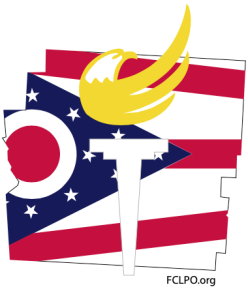Book Review
Libertarian review that highlights books on individual freedom, limited government, free markets, and personal responsibility. It critiques works from diverse genres, promoting independent thought and offering insights into libertarian ideas and their real-world impact.
Rudolf Flesch’s book Why Johnny Still Can’t Read (1981) exposes the failures of America’s education system in teaching kids to read. It builds on his earlier work, Why Johnny Can’t Read (1955), and argues that schools continue to use ineffective teaching methods, leaving millions of children unable to read properly. Flesch places the blame on government control, bureaucratic stubbornness, and special interests, calling for parents to take back control of their children’s education.
The Problem with Reading Education
Flesch focuses on the “look-say” or whole-word method, which teaches kids to memorize entire words by sight rather than understanding how letters and sounds work together. This method treats reading like recognizing pictures instead of a logical skill. Flesch argues this approach ignores how the English language works and sets kids up for failure.
Instead, he champions phonics, which teaches kids to connect letters with sounds and sound out words step by step. Phonics gives kids the tools to read new words independently. Without it, children end up frustrated and unable to read anything beyond the words they’ve memorized. Flesch calls this failure not just a mistake, but a betrayal of children’s potential.
Why Schools Stick to Bad Methods
The real villain in this story is government overreach. Public schools operate like monopolies, with little accountability to parents or competition to drive improvement. Bureaucrats and textbook companies profit from sticking to the whole-word method, even when it fails students. Teachers, tied to union rules and outdated practices, often have no say in how reading is taught.
Flesch points out that government control of education stifles innovation. Instead of experimenting with better methods like phonics, schools double down on bad policies because admitting failure would hurt their reputation. Worse, parents are forced to accept whatever the system decides because they have no real alternatives if they can’t afford private schools or tutoring.
The Consequences of Poor Reading Instruction
The failure to teach reading properly has devastating effects. Kids who struggle to read fall behind in every subject, limiting their future opportunities. Many develop a hatred of reading and lose confidence in their ability to learn. This failure is entirely preventable, but the system’s refusal to change makes kids—and society—pay the price.
Flesch argues that literacy is a fundamental skill for freedom. People who can’t read well are easier to control and manipulate, which benefits those in power. A population that struggles with reading is less likely to question authority or seek out new ideas.
A Call for Parental Action
Flesch doesn’t just blame the system; he empowers parents to take action. He encourages them to teach their kids phonics at home if schools won’t. He provides simple steps for parents to follow, proving that teaching reading isn’t complicated when you use the right method.
Libertarians can see this as a perfect example of how individuals, not government, solve problems. Parents who take charge of their children’s education can bypass the broken system and give their kids the tools they need to succeed. Flesch’s message is clear: don’t wait for schools to fix themselves—act now.
The Libertarian Solution
Flesch’s critique aligns with libertarian ideas about education reform. He shows how central planning and government monopolies lead to failure, while individual action and choice lead to success. A system that gives parents more control—through school choice, vouchers, or homeschooling—would let families escape failing schools and encourage competition to improve education for everyone.
Why Johnny Still Can’t Read remains a powerful reminder that freedom works better than bureaucracy. By taking education out of the government’s hands and putting it back into the hands of families, we can ensure that every child learns to read—and learns to love it.

